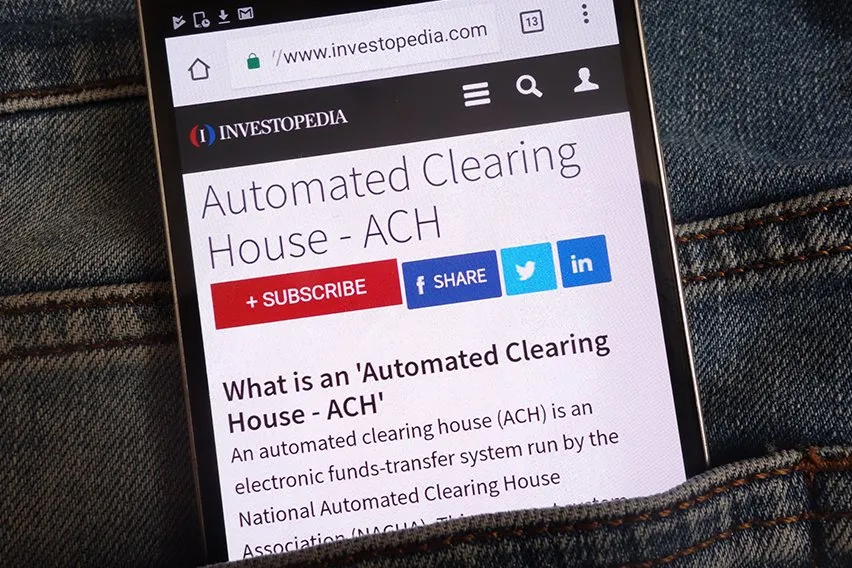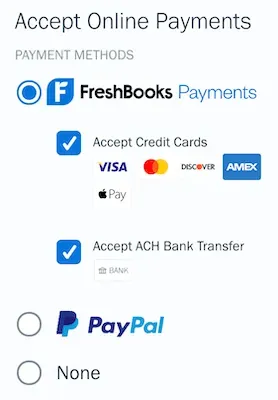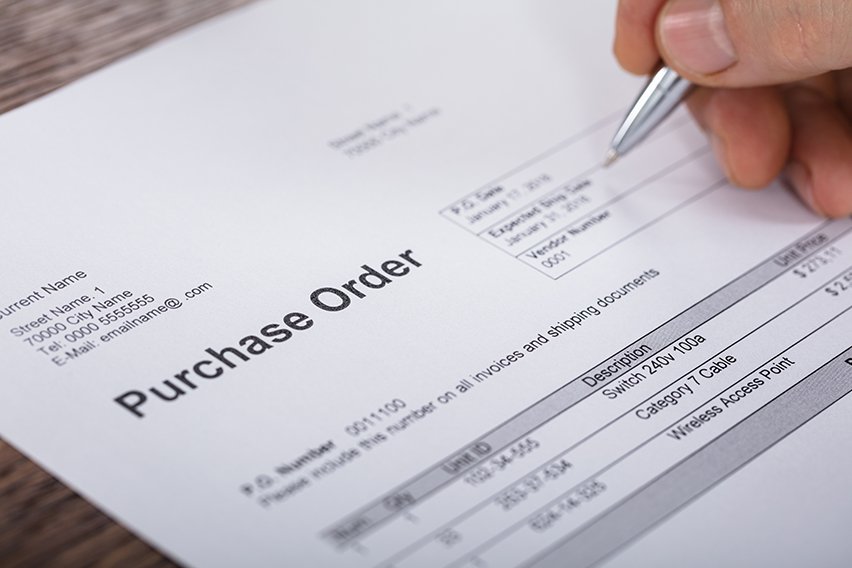ACH Transfer: What Is It and How Does It Work?

Have you ever wondered how ACH transfers work? You might have heard of ACH transfers but aren’t entirely sure what they are. Maybe you know exactly what they are but want to learn more about the process. Learn why it can be a great option for your business or personal finances. This article will explain everything from start to finish. By the end of this article, you will understand how ACH transfers work and when you might need one in your life.
Key Takeaways
- An Automated Clearing House (ACH) transfer is a payment method used by businesses and individuals
- There are two types of ACH transfers: Direct deposits and direct payments
- ACH transfers can drastically simplify both receiving and giving payments, but many banks put limits on them
- Almost every major bank offers ACH transfers
- ACH transfers are very secure
- ACH transfers are mostly completed in one business day
- ACH credit transactions are quite often free of charge
Here’s What We’ll Cover:
Benefits & Drawbacks of ACH Transfers
Which Banks Offer ACH Transfers?
When Would You Use an ACH Transfer?
How Long Do ACH Transfers Take?
How Much Do ACH Transfers Cost?
What is an ACH Bank Transfer?
An Automated Clearing House (ACH) transfer is a payment method businesses and individuals use. It allows you to move money between accounts at different institutions.
Here is an example. A business wants to pay rent with its checking account at Bank X. To do this, they would initiate an electronic funds transfer (EFT) using the Automated Clearing House network. This allows them to send money electronically from one bank account directly into another bank account. They can do this without having physical currency pass hands. This type of transaction is known as an “ACH Transfer.” It’s also sometimes referred to as “electronic check conversion.” The term “automation” refers to the fact that no human labor is involved in processing these transactions. There are also no checks involved.
Rather than writing out a paper check that must be physically mailed to the business where they want to pay their rent, the company initiates an ACH transfer. This transaction takes less time than mailing a check or wiring funds because it is completed electronically.

Types of ACH Transfers
There are two types of ACH transfers: Direct deposits and direct payments. The difference between these two types of transfers mainly comes down to who initiates the transfer process.
Direct Deposits
In a direct deposit, your account receives money (e.g., paycheck, government rebates) from an outside source.
Direct Payments
On the other hand, a direct payment is when funds (e.g., bill payments) are sent from one account to another.
It’s all about perspective. If you’re receiving a direct deposit, that means some other party initiated a direct payment to get those funds rolling in your direction and vice versa.
Benefits & Drawbacks of ACH Transfers
The benefits of ACH transfers are:
- They can drastically simplify receiving and giving payments.
- The time for an ACH transfer is very fast (only days), allowing for less delay between payments.
- You can easily split an ACH transfer between multiple accounts for simple group payments.
- They are extremely secure.
- They are low in fees, if there are any at all.
- There are few mistakes with ACH transfers.
The drawbacks of ACH transfers are:
- Many banks impose limits on the amount of money that can be transferred through ACH transfers, either daily, weekly, or monthly.
- While ACH transfers can be quite fast, they are not instantaneous, which may lead to difficulties if that’s a requirement for your business.
- They are US only, so they can only be used between US bank accounts
- There is the potential for payroll fraud. Because they are automated, employees are able to input fraudulent hours and pay.
Which Banks Offer ACH Transfers?
Just about every major bank offers ACH transfers. Here’s a list of banks that offer ACH transfers (According to BankingMyWay):
- Bank of America
- Citibank
- HSBC
- Chase
- Wells Fargo
- Bank of the West
- TD Bank
- USAA Federal Savings Bank
- PNC Bank
- BB&T
- SunTrust Banks, Inc.
- BMO Harris Bank N.A.
- U.S. Bancorp
- BNY Mellon
It is important to note that while these are some of the biggest banks in America, they are not the only ones that offer ACH transfers. Many smaller banks do as well.
How Do You Use ACH Transfers?
You probably use ACH transfers without even knowing it. Have you ever paid a bill or sent money to a friend or relative? If yes, chances are you’ve used an ACH transfer (direct payment, in this case).
ACH debit transactions are extremely handy for businesses as well. They’re frequently used by business owners looking for a quick and easy way to move their money.
But perhaps the most common use of ACH transfers is for direct deposit purposes relating to monthly or bi-weekly paychecks. It’s important to note that some employers only allow one ACH transfer per month and that you’ll need to set it up through your payroll office.
When Would You Use an ACH Transfer?
ACH transfers are often the best option in the following situations:
- The payee doesn’t accept checks. ACH transfers make it a breeze to get money into their hands in a snap.
- You need to transfer money immediately. An ACH transfer is completed electronically and typically takes a few days to process.
- You need to send money to multiple accounts. In contrast to wire transfers, you can easily split your transfers into different deposits so that each one arrives in the correct account and the correct amount.
- You need a quicker alternative to a wire transfer, which can take several days or weeks to complete. ACH transfers are faster and easier to initiate than wire transfers, saving you valuable time and eliminating unnecessary hassle.
Are ACH Transfers Secure?
ACH transfers are extremely secure.
Unlike wire transfers, which pass through several different companies before making their way to the recipient’s bank account, an ACH transfer passes only through your bank’s servers. Because of this, you don’t have to worry about unauthorized access at any point in the transaction.
In addition, financial institutions, including banks where you hold accounts, must undergo regular security audits. They’re also regulated by the Consumer Financial Protection Bureau, a government agency that oversees the laws and regulations powering ACH transfers.

How Long Do ACH Transfers Take?
When using FreshBooks Payments powered by Stripe, ACH transfers usually take up to 4 business days to be completed. ACH transfers through the Standard Stripe process may take up to 5 business days. For more information about transaction times, please visit our support page’s Payout Speed section.
If you’re planning on making frequent ACH payments to the same accounts, it’s a good idea to set up automatic payments through your bank so they happen automatically. For example, if you have monthly bills to pay, you can set up an ACH transfer from your checking account to the payment company for each bill.
How Much Do ACH Transfers Cost?
ACH credit transactions are often free of charge. You should always check with your bank to verify if any fees may be assessed for using this payment method. Always opt for accepting payments online if they’re offered for free since they’ll save you money.
Another common use is for automatic bill pay. For example, if you have a monthly mortgage payment or another bill, you can set it up to be automated through an ACH transfer. You’ll need to provide your bank account and routing number to make the transaction.

Alternatives to ACH Transfers
You can also take advantage of electronic bill pay. This is a less secure option than an ACH transfer because it involves giving out your bank account and routing number to companies instead of transferring the money electronically from your bank accounts.
However, automated electronic billing may offer you more flexibility. You can specify different payment dates for each company rather than only initiating one payment date for all of your bills with an ACH transfer. You’ll also have the option of specifying different amounts for each company rather than splitting up a larger amount across multiple companies.

Conclusion
ACH transactions are a payment method that’s both secure and easy to use. They are completed electronically, are usually free of charge, and take just one business day to complete. ACH transfers can be used with automatic bill pay or when you need to transfer between multiple accounts.
If you’re looking for an alternative to an international wire transfer or want more flexibility when setting up your automated bill payment system, consider using an ACH transfer to meet your needs. Hopefully, this article tells you everything you need to know about ACH transfers and how they work. Check out the payments section for more content.
FAQs on ACH Transfer
How much money can you transfer via ACH?
Your bank determines the maximum ACH transfer limits. These caps typically range from $10,000 to $25,000, but some institutions have increased their maximum transfer amount to $1,000,000.
Can anyone make an ACH payment?
Anyone with a bank account can initiate an ACH transaction. One thing to remember is that banks on the ACH network are largely based in the U.S., but some operate overseas, both in Europe and the U.K.
Do you get charged for an ACH transfer?
In the vast majority of cases, ACH transfers are completely free. There are some banks, however, that do charge a small fee for electronic payments. Be sure to check with your local branch to determine if this is the case.
Does ACH work on weekends?
No, the ACH network does not process transfers during the weekends as the Federal Reserve system is closed.
What is the difference between a wire transfer and an ACH?
Wire transfers are almost instantaneous, transferring from institution to institution. Whereas ACH transfers can take up to several business days and pass through the Automated Clearing House. Wire transfers are also international, however, ACH transfers will only work with US bank accounts.
About the author
Michelle Alexander is a CPA and implementation consultant for Artificial Intelligence-powered financial risk discovery technology. She has a Master's of Professional Accounting from the University of Saskatchewan, and has worked in external audit compliance and various finance roles for Government and Big 4. In her spare time you’ll find her traveling the world, shopping for antique jewelry, and painting watercolour floral arrangements.
RELATED ARTICLES


 Purchase Invoice: Everything You Need to Know
Purchase Invoice: Everything You Need to Know What Is Cloud Accounting? A Small Business Guide
What Is Cloud Accounting? A Small Business Guide How to Pay Using Pre-Authorized Debit? A Beginner’s Guide
How to Pay Using Pre-Authorized Debit? A Beginner’s Guide What Is Retroactive Pay?
What Is Retroactive Pay? Payment Processor: Overview and Top 5 Picks for 2025
Payment Processor: Overview and Top 5 Picks for 2025 Credit Vs Debit Card: What’s the Difference?
Credit Vs Debit Card: What’s the Difference?